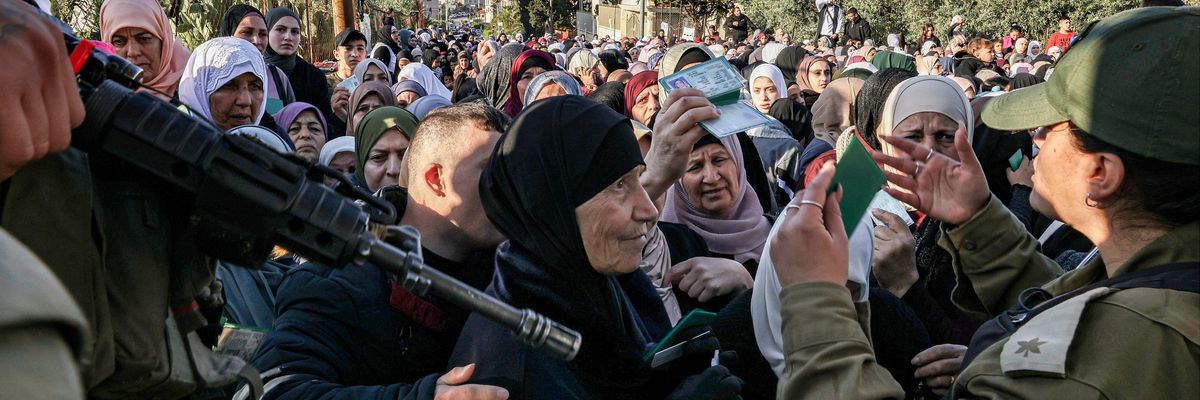More than 50 countries are set to participate in next week's hearings at the International Court of Justice focusing on Israel's illegal 57-year occupation of Palestine, a forum that follows the Hague tribunal's finding last month that Israel is "plausibly" committing genocide in occupied Gaza.
The ICJ—also known as the World Court—will hold a week of hearings on the legal consequences of Israel's occupation of Palestine, which dates to the Israeli conquest of the West Bank, East Jerusalem, Gaza Strip, Syrian Golan Heights, and Egyptian Sinai Peninsula during the 1967 Six-Day War.
"The International Court of Justice is set for the first time to broadly consider the legal consequences of Israel's nearly six-decades-long occupation and mistreatment of the Palestinian people," Human Rights Watch senior legal adviser Clive Baldwin said in a statement. "Governments that are presenting their arguments to the court should seize these landmark hearings to highlight the grave abuses Israeli authorities are committing against Palestinians, including the crimes against humanity of apartheid and persecution."
The West Bank, East Jerusalem, and Golan Heights remain under Israeli military occupation six decades after their conquest. The United Nations—to which the ICJ belongs—and many international NGOs contend that, despite removing its troops and settlers from Gaza two decades ago, Israel continues to occupy Gaza by controlling the besieged enclave's airspace, territorial waters, and the entry and exit of people and goods.
Since the October 7 Hamas-led attacks on Israel, the Israeli Defense Forces (IDF) have killed or wounded more than 100,000 Palestinians in Gaza while forcibly displacing around 90% of the population. Numerous Israeli leaders have called for the renewed physical occupation, Jewish resettlement, and ethnic cleansing of the strip.
During the current assault on Gaza, occupation forces have also killed at least 388 Palestinians, including 99 children, in the West Bank, according to U.N. human rights officials.
Israeli settlers have for decades been steadily colonizing the occupied territories under the protection of the IDF, while ethnically cleansing Palestinians whose lands and homes they steal.
Next week's hearings come on the heels of the ICJ's provisional ruling last month in a case led by South Africa—which will be the first nation after Palestine to present at next week's hearing—that Israel is "plausibly" committing genocide in Gaza. The tribunal ordered Israel to "take all measures within its power" to adhere to its obligations under Article II of the Genocide Convention.
Earlier this week, South Africa urgently appealed to the ICJ to act amid the looming threat of an Israeli ground invasion of Rafah. More than 1.5 million Palestinians, most of them refugees ordered to flee to the south of Gaza by invading Israeli forces, are crammed into what is now one of the world's most densely populated places.
On Friday, the ICJ declined to take any additional action against Israel, while reiterating that the "perilous situation" in Rafah "demands immediate and effective implementation of the provisional measures indicated by the court" in last month's ruling.
